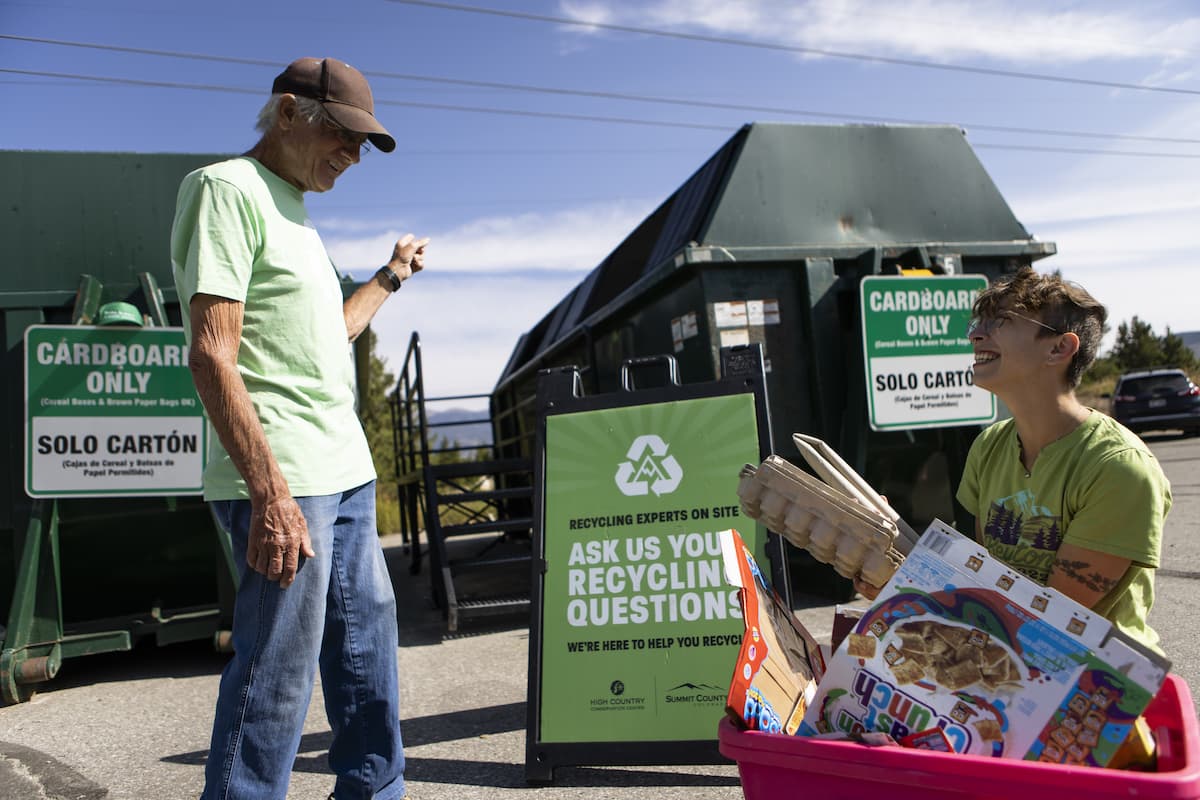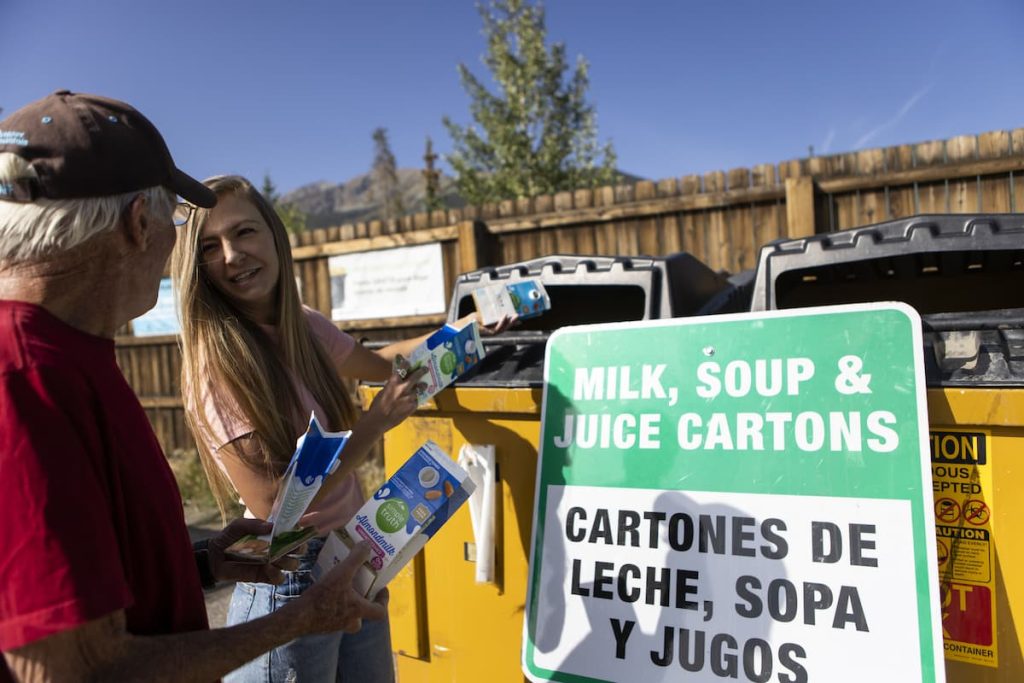
Dear Eartha, As I learn more about recycling guidelines, and what is or isn’t accepted, it seems like I can’t recycle anything in Summit County! What gives?
I applaud you for digging into local guidelines. Recycling can indeed be complicated, and answering your question means looking beyond Summit County. Let’s follow the journey your recycling takes after you place it in the bin.
What happens to your recycling
Mixed recycling — paper, cans and plastic (bottles, jugs and tubs) — is picked up at your curb (or shared dumpster) and piled into the back of a truck with recyclables from other households and businesses. That truck eventually makes its way to the Summit County Resource Allocation Park. There, workers pick out obvious pieces of trash, like a full garbage bag, and everything else rides a conveyor belt into a large machine called a baler. In the baler, the recycling is then squished into a block, or — you guessed it — bale.
When there are enough bales to fill a semitruck, it all gets a ride to a large recycling processor in Denver called a MRF (rhymes with Smurf), which stands for materials recovery facility. There, the bales are fluffed up and sorted — by machine and hand — into piles of aluminum, paper, cardboard, No. 1 plastic and so on. Each of those materials is then baled separately and sold to companies who give new life to aluminum, paper, cardboard — you get the idea.
So, what’s that got to do with the list of recyclables accepted locally? Consider a milk jug. Since the large recovery facility in Denver can separate milk jugs and sell them, that facility allows its clients — like the Summit County Resource Allocation Park — to collect milk jugs in mixed recycling. However, if a facility cannot effectively separate and sell an item (such as No. 1 berry containers, plastic six-pack holders, plastic bags — the list goes on), that item cannot be included in the mixed recycling the facility accepts from its clients. In short, our local recycling rules are informed by what the larger Denver facility can effectively process and actually recycle. While this may feel underwhelming, this recycling journey has a happy ending: When you follow local guidelines, everything in your bin gets recycled!

But in Denver my mom can recycle
I often hear that Front Range friends can recycle more items. Keep in mind that there are several large recovery facilities on the Front Range; each has different capabilities, which can result in slightly varied rules. For example, Boulder County’s single-stream guidelines allow plastic berry and takeout containers. However, just 50 miles away in Fort Collins, these items aren’t accepted. Recycling rules can and do vary from one city or county to the next. No matter where you are, it’s critical to stay informed and follow the local guidelines. That’s how we can ensure our recycling lives its next best life.
A word on glass
Those familiar with Summit County guidelines know that glass is not accepted in mixed recycling bins. Remember, when mixed recycling is collected at your home or office, everything gets tossed into the recycling truck, meaning glass would break into tiny pieces. Glass shards ruin processing equipment, and they can get stuck in paper or plastics, which then become trash.
Because we separate our glass from single stream, the bottles and jars collected in Summit County can be infinitely recycled into new glass bottles. (And they are, just down Interstate 70 at Rocky Mountain Bottle Company, which makes new beer bottles for MillerCoors.) When glass is accepted in single stream, that glass is typically turned into fiberglass, which is not infinitely recycled, but sent to the landfill at the end of its life. And in some communities without easy access to a bottle recycling facility, glass ends up in the landfill.
Many of us want to do the right thing and recycle as much as we can. But frankly, not everything is recyclable. Instead of lamenting the lack of opportunity, I encourage you to expend your energy on wasting less overall, reusing what you can and, for those things you can recycle, take time to do it right.
